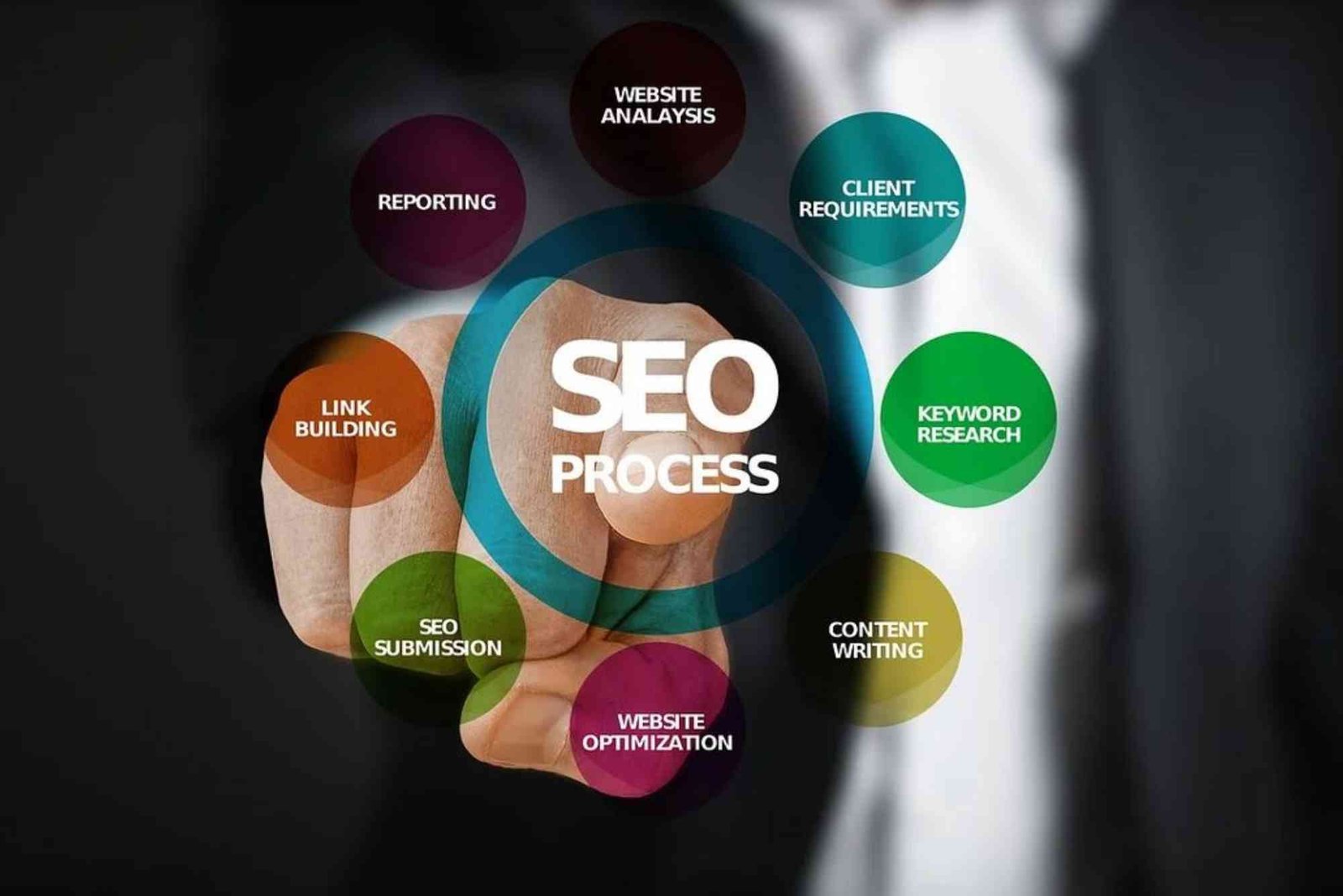How to What Is Off Page SEO Step by Step for Best Results
In today’s competitive digital landscape, knowing how to what is off page SEO step by step can be the difference between a hidden website and a successful online presence. Off page SEO is not just about getting backlinks — it’s about building trust, authority, and credibility in your niche. When executed correctly, off page SEO signals to Google that your site deserves to rank higher than your competitors.
What Is Off Page SEO?
Off page SEO refers to all the actions you take outside your website to improve its visibility and authority in search engines. While on-page SEO focuses on optimizing your content, keywords, and structure within your website, off page SEO builds reputation through external sources.
These external signals come in the form of backlinks, brand mentions, social media engagement, and online reviews. The idea is simple: the more trustworthy and referenced your website appears across the web, the higher it ranks on Google.
If you’re wondering where to begin, the best way is to understand What Is Off Tips through practical examples and proven strategies. You can explore more about this in our What Is Off Tips section.
Why Off Page SEO Matters
Google’s algorithm heavily relies on backlinks and external signals to determine the value of a website. When reputable websites link to yours, it’s seen as a “vote of confidence.” This helps Google identify your site as an authority in your field.
Here are some key benefits of a strong off page SEO strategy:
-
Higher search rankings: Quality backlinks and brand signals push your site up in search results.
-
Increased domain authority: Trusted backlinks improve your domain’s credibility.
-
Better brand awareness: Social mentions and shares expose your brand to new audiences.
-
More organic traffic: The higher your ranking, the more traffic you attract naturally.
Now, let’s move step by step through how to what is off page SEO for best outcomes.
Build High-Quality Backlinks
Backlinks remain the cornerstone of off page SEO. However, not all links are created equal. Focus on getting backlinks from authoritative websites in your industry. Guest posts, media mentions, and digital PR are effective ways to earn these links naturally.
When building backlinks, always prioritize quality over quantity. A single link from a high-authority domain can be more powerful than dozens of links from low-quality sites.
Engage in Guest Posting
Guest posting allows you to showcase your expertise on other blogs while earning valuable backlinks. Choose platforms that are relevant to your niche and have genuine audiences. Write informative, unique content that benefits readers — not just content stuffed with links.
Guest posting helps in building authority, increasing brand recognition, and driving referral traffic to your website.
Strengthen Your Social Media Presence
Social media signals indirectly influence SEO performance. By sharing your content on platforms like LinkedIn, Facebook, and X (formerly Twitter), you encourage engagement and increase visibility. Each share or mention contributes to your brand authority.
Social media is also a great tool for relationship building — which can later lead to natural backlinks from followers and industry peers.
Leverage Brand Mentions and Citations
Even unlinked brand mentions — when your brand name appears without a hyperlink — contribute to off page SEO. Search engines recognize these as trust signals. You can use tools like Google Alerts or Mention to track where your brand appears online.
Ensure your business details (name, address, phone number) are consistent across all platforms and directories to strengthen your local SEO signals.
Participate in Forums and Communities
Becoming active in niche forums, Q&A platforms like Quora, or professional communities helps establish your authority. Offer genuine, helpful answers and occasionally link to your content when it’s relevant and valuable.
Avoid spamming links, as it can harm your reputation. Instead, focus on providing expertise — the links and followers will come naturally.
Collaborate with Influencers
Influencer marketing is another modern off page SEO tactic. When a respected influencer mentions your brand or shares your content, it boosts credibility and attracts organic backlinks. Choose influencers who align with your niche and values.
These collaborations can take the form of guest posts, interviews, or co-created content that benefits both parties.
Optimize for Local SEO
If you run a local business, optimizing your Google Business Profile is crucial. Encourage customers to leave reviews and ensure your business information is accurate. Positive reviews and user-generated content act as powerful trust signals for search engines.
Local citations — mentions of your business on platforms like Yelp or Bing Places — also enhance your visibility in local search results.
Content Marketing Beyond Your Site
Publishing valuable content off your own site is an effective off page SEO method. This includes guest infographics, case studies, eBooks, and interviews. Share your insights on platforms like Medium, LinkedIn Articles, or SlideShare to gain exposure.
When people engage with or link back to these resources, your site authority grows organically.
Monitor and Analyze Your Off Page SEO Performance
Tracking performance is essential for improvement. Use tools like Google Search Console, Ahrefs, or SEMrush to monitor backlinks, referring domains, and domain authority.
Regularly analyze which strategies bring the best results and refine your efforts accordingly. SEO is a continuous process — consistency always wins.
Common Mistakes to Avoid in Off Page SEO
-
Building links too quickly or buying backlinks.
-
Ignoring relevance — links should come from sites in your niche.
-
Focusing solely on backlinks without brand engagement.
-
Neglecting social signals and online reviews.
-
Over-optimizing anchor texts, which can appear spammy.
Avoiding these mistakes keeps your SEO strategy natural and sustainable.
The Role of E-E-A-T in Off Page SEO
Google’s E-E-A-T (Experience, Expertise, Authoritativeness, and Trustworthiness) framework heavily influences off page SEO. When other reputable sites mention or link to you, it signals to Google that your content is reliable and expert-driven.
Demonstrating experience — through case studies, expert interviews, or verified author profiles — further enhances your brand’s reputation and SEO performance.
Advanced Off Page SEO Techniques
Once you’ve mastered the basics, explore advanced strategies to strengthen your SEO impact:
-
Digital PR campaigns to earn links from news sites and publications.
-
Podcast guesting to reach new audiences and gain natural mentions.
-
Broken link building, where you replace dead links on other websites with your content.
-
Skyscraper technique, improving top-performing content and earning more backlinks.
-
Co-marketing partnerships with brands that complement your services.
Each of these methods adds to your site’s trust signals, helping Google recognize your authority.
Best Practices for Sustainable Off Page SEO
-
Keep your link profile natural and diverse.
-
Build relationships, not just links.
-
Combine off page SEO with strong on-page content.
-
Continuously monitor and update your strategies.
-
Maintain a long-term focus — SEO growth takes time.
For additional insights, you can check out our What Is Off Page Guide or read a Related article on lookme.ae to broaden your understanding of effective SEO techniques.
Mastering Off Page SEO Step by Step
Understanding how to what is off page SEO step by step is crucial for building a strong digital presence. It’s about cultivating authority, trust, and visibility beyond your website. Whether through quality backlinks, social engagement, or content promotion, every off page SEO action contributes to your brand’s growth.
If you’re serious about boosting your rankings and online credibility, start implementing these strategies today. Remember — SEO success doesn’t happen overnight. Stay consistent, monitor results, and keep refining your approach for long-term success.
Ready to take your SEO to the next level? Visit BreezyNote to explore expert guides, actionable strategies, and professional insights designed to help your business grow faster.
FAQs
1. What are examples of off page SEO?
Examples include backlinks, social media marketing, influencer outreach, guest posting, and brand mentions. These activities build trust and authority outside your website.
2. What is the difference between on-page and off-page SEO?
On-page SEO focuses on internal factors like content and keywords. Off page SEO involves external actions like backlinks and brand promotion that improve your site’s authority.
3. How many backlinks are good for SEO?
There’s no exact number. Quality matters more than quantity. A few high-quality links from reputable websites are more valuable than hundreds of low-quality ones.
4. How long does off page SEO take to show results?
It usually takes three to six months to see significant improvements, depending on your competition and the strength of your link-building efforts.
5. Can social media help in off page SEO?
Yes. While social signals don’t directly affect rankings, they increase visibility and engagement — leading to more backlinks and brand recognition.
6. Do nofollow links affect SEO?
Yes, indirectly. Even though nofollow links don’t pass link juice, they help with referral traffic and brand visibility, which are beneficial for long-term SEO.
7. Is off page SEO still important in 2025?
Absolutely. Off page SEO remains a key ranking factor as Google continues to prioritize authority and trustworthiness.












